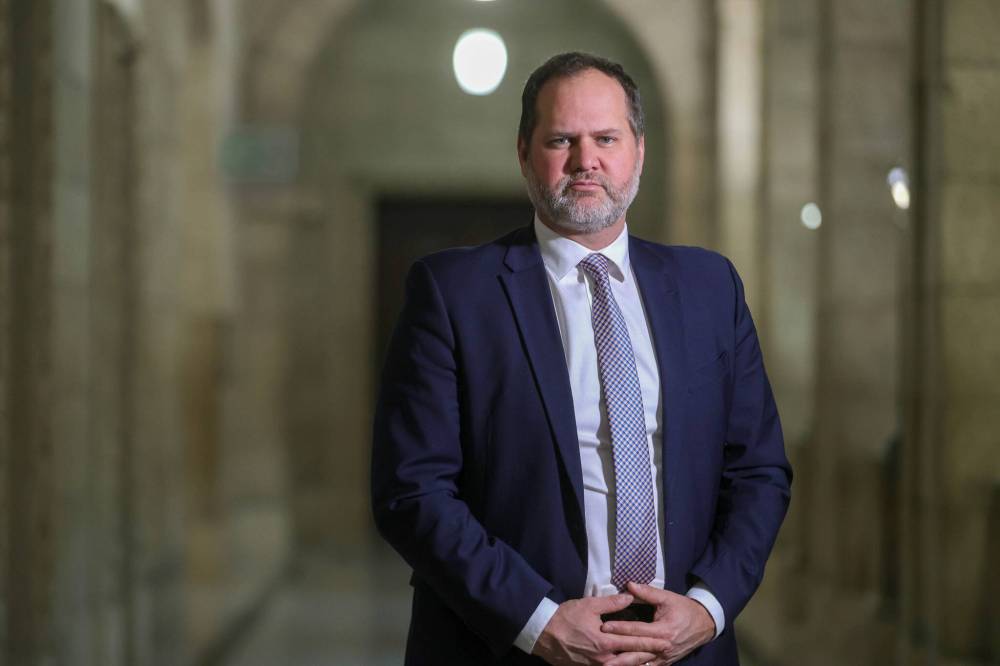Justice Minister Matt Wiebe says the province is exploring its options after a judge recommended government be required to cover the cost of lawyers representing families of the deceased at inquests.
Provincial court Judge Robert Heinrichs made the recommendation in a report last week on the long-delayed joint inquest into the police-involved deaths of Evan Caron, 33, and Adrian Lacquette, 23, which he oversaw in January.
In a statement issued Wednesday, Wiebe said he reviewed the report and the judge’s recommendations.

RUTH BONNEVILLE / FREE PRESS FILES
‘Moving forward, we will explore options so that all families have the opportunity to meaningfully participate in the inquest process,’ said Justice Minister Matt Wiebe.
“I take to heart the comments made by family members at the inquest about the (financial) burden it can place on them,” Wiebe said.
“Moving forward, we will explore options so that all families have the opportunity to meaningfully participate in the inquest process.”
But he stopped short of saying the province would make the funding mandatory, as Heinrichs urged.
The men were shot and killed by Winnipeg police a week-and-a-half apart in September 2017 in separate circumstances. The shootings of both men — Caron stabbed an officer, while Lacquette pointed a gun at police — were deemed justified.
Heinrichs’ lengthy report from the inquest — a court hearing called by the chief medical examiner to look at the facts of deaths in certain circumstances — was released to the public last Thursday.
Many families, Heinrichs wrote, can’t afford to pay for lawyers, and provincial judges have no authority to order any agency to cover the cost.
Provincial funding has, technically, been available for families who’ve been granted standing in inquests in the past, but is only provided in extraordinary cases.
A government spokesman previously said five of 10 families who sought such funding in any provincial inquest since 2017 were approved.
The factors the province considers in granting the money include: the complexity of the inquest; whether it could be said the Crown attorney assigned to the inquest is not able to “protect the family’s interest;” if the family had a role in the events being examined; and their ability to pay.
Vivian Caron and Joanne Malcolm, mothers of the two men, sought funding from the government, but were denied.
“They wanted to have legal counsel represent them at this inquest … Joanne Malcolm and Vivian Caron carried on, wanting to represent themselves, however, Joanne Malcolm eventually gave up,” wrote Heinrichs.
“Vivian Caron did carry on admirably and fully participated in this inquest, questioning witnesses and making recommendations. However, she would have benefited from having legal counsel.”
Vivian Caron, who is in her late 50s, told the court the hearing was not satisfactory for her, as a result.
Heinrichs said that seeking but not securing funds has been the case for “many other family members” in previous inquests.
The judge suggested providing such funding aligns with the principles of reconciliation between Indigenous people and other Canadians. Both Evan Caron and Lacquette were Indigenous.
Richard Longstrup — a lawyer appointed to conduct the hearings as as inquest counsel — also focused on legal funding in his closing remarks.
Longstrup recommended funding be made mandatory, in part, so lawyers can help families cope during the difficult hearings and sift through complex evidence on their behalf.
erik.pindera@freepress.mb.ca

Erik Pindera
Reporter
Erik Pindera is a reporter for the Free Press, mostly focusing on crime and justice. The born-and-bred Winnipegger attended Red River College Polytechnic, wrote for the community newspaper in Kenora, Ont. and reported on television and radio in Winnipeg before joining the Free Press in 2020. Read more about Erik.
Every piece of reporting Erik produces is reviewed by an editing team before it is posted online or published in print — part of the Free Press‘s tradition, since 1872, of producing reliable independent journalism. Read more about Free Press’s history and mandate, and learn how our newsroom operates.
Our newsroom depends on a growing audience of readers to power our journalism. If you are not a paid reader, please consider becoming a subscriber.
Our newsroom depends on its audience of readers to power our journalism. Thank you for your support.